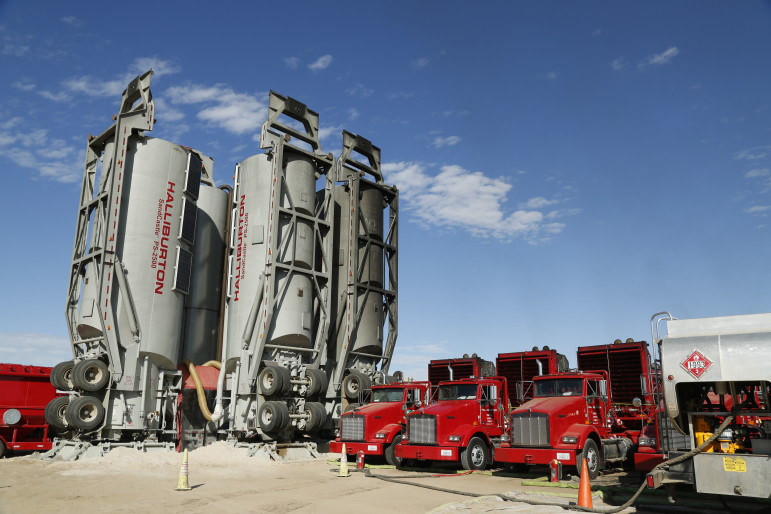This story originally appeared on Inside Energy.
Bruce Friest asks himself if he would have done it again, knowing what he knows now – move from Minnesota to start a small trucking company during the peak of North Dakota’s oil boom.
“I don’t know if I would, I really don’t,” he said. “It was hard on me, it was hard on my kids, I was married and my marriage fell apart.”
A couple of years ago, his trucks were sub-contracted to haul oil by a larger trucking company. Then that company, Montana Midwest, went bankrupt, still owing Friest more than $200,000.
Oilfield bankruptcies of companies large and small have been surging as prices remain at their lowest levels in a decade or more. But it’s not the only way a worker can be left underpaid. An Inside Energy analysis shows a growing number of oil workers are turning to the courts, saying they weren’t paid fairly even when times were good.
With the exception of a couple weeks in November, 28-year-old oil driller Kody Armajo has been out of work for a year. He has returned home to live with his parents in Riverton, Wyo.
“I should have saved a lot more,” said Armajo, his long brown hair tied back with a bandanna. “I should be debt free and have thousands in the bank, but I don’t.”
Then one day last winter Armajo received a letter about a class action lawsuit, saying that his former employer, Precision Drilling, didn’t pay him enough overtime when he worked for them. He was eventually awarded $6,000.
“Yeah, I was way surprised, like what the heck is going on? I had no idea,” he said.
Lawsuits On The Rise
As oil prices started dropping a year and a half ago, lawsuits like Armajo’s jumped in numbers. In Colorado, where he worked,there were nine times as many wage suits against oil and gas companies in 2015 as there were in 2010.
In Texas, the biggest oil state, there were nearly 10 times as many lawsuits.
Federal records show oil and gas companies are among the top violators of wage laws – particularly in not paying overtime. The U.S. Department of Labor’s Wage and Hour Division was seeing sufficient problems with apparent violations by 2012 to specifically investigate the oil and gas industry in some parts of the country.
Since then, the office has recovered about $40 million dollars in unpaid wages.
“We have found cases where workers were not even paid the minimum wage, because they’re working so many hours,” said Tess Castilleja, Wage and Hour Division planning and review officer. “So the idea that they’re being highly compensated, in some cases, they’re not.”
Read the rest of this story on Inside Energy.
Inside Energy is a public media collaboration focused on America’s energy issues.













